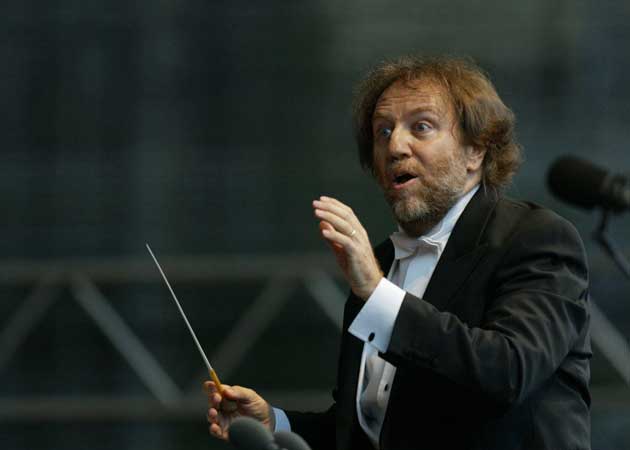Leipzig Gewandhaus Orchestra/Chailly, Barbican, London

Your support helps us to tell the story
From reproductive rights to climate change to Big Tech, The Independent is on the ground when the story is developing. Whether it's investigating the financials of Elon Musk's pro-Trump PAC or producing our latest documentary, 'The A Word', which shines a light on the American women fighting for reproductive rights, we know how important it is to parse out the facts from the messaging.
At such a critical moment in US history, we need reporters on the ground. Your donation allows us to keep sending journalists to speak to both sides of the story.
The Independent is trusted by Americans across the entire political spectrum. And unlike many other quality news outlets, we choose not to lock Americans out of our reporting and analysis with paywalls. We believe quality journalism should be available to everyone, paid for by those who can afford it.
Your support makes all the difference.Leipzig's venerable Gewandhaus Orchestra arrived at London's Barbican Centre with so much more than Bach's St Matthew Passion. They brought with them history, tradition and Bach's very own choir from St Thomas's Church, where his passion first startled Leipzig's faithful on Good Friday 1727.
Connections like that, and the responsibility to honour them, clearly weighed heavily on conductor Riccardo Chailly. The seriousness of the preparation, the rightness of the style, and a sense of awe in the service of this great work illuminated every page.
First to startle was the double-chorus – the St Thomas's Boys Choir and Tolz Boys Choir – whose sensational presence, power and precision made something entirely new of the opening chorale-fantasia. The open-throated clarity of this singing, its subtlety and nuance, is something I've rarely heard equalled. The reflective chorales carried a poise and wisdom that totally belied the young faces before us. The final incarnation of the famous so-called "Passion" chorale, richly embellished at the moment of Christ's death, was more perfect and more affecting than anything I've heard in a long time.
The challenge of the St Matthew lies in the extreme concision of the myriad moments that make up its considerable whole. They are like snapshots of the scriptures, fleeting and forceful, flashes of instrumental or vocal colour. Chailly and soloists, vocal and instrumental, knew how to point and savour them, so that the moment of the first communion, for instance, drew from the Evangelist (Johannes Chum, quirky but compelling) the most sublime phrase he sang all evening to the words: "Take, eat; this is my body."
The arias are the emotional climacterics of the piece, and all Chailly's soloists, not least the two women, alto Marie-Claude Chappuis and the late replacement soprano, Sybella Rubens, understood well how the words and all they communicate must take precedence; no vocal vanity here. Even Thomas Quasthoff joined in the chorales to warm up for his arias.
So, an extraordinary performance. When the single string chord symbolising the moment Christ is finally laid to rest is so quiet as to evoke the silence of perfect peace, you know you are in the presence of real artistry.
Join our commenting forum
Join thought-provoking conversations, follow other Independent readers and see their replies
Comments